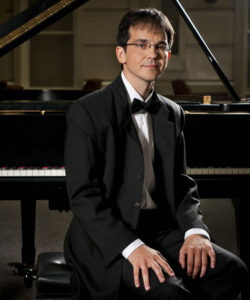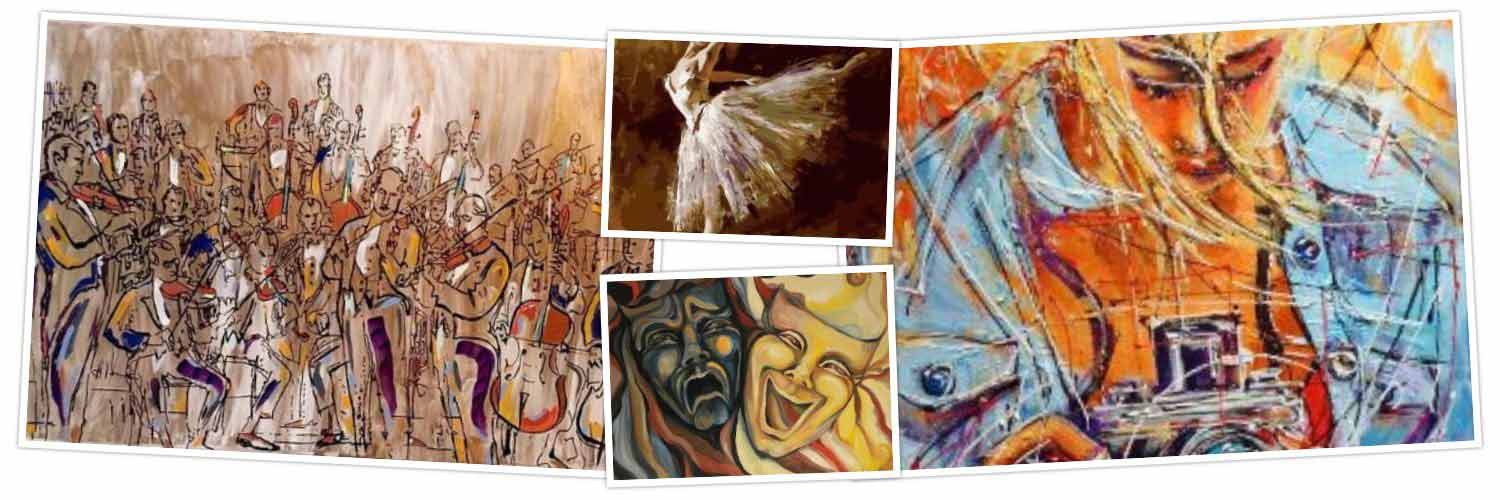Viktor Valkov to Premiere New Work at Camerata Recital
By JASMINA WELLINGHOFF, Editor —
Pianist Viktor Valkov and composer Luke Dahn are both members of the University of Utah music department but it was not music that brought the two men together. It was chess. Both are avid chess players, “so we just played chess,” explained Valkov, in a phone interview Tuesday.
But one day, two years ago, Dahn casually asked his chess partner whether he would play a piece if he, Dahn, were the write one for him. “I said, yeah, but I always say yes even though I hardly ever follow up on it,” said Valkov with a chuckle. “Still, I went online and looked him up and I was really impressed by what I heard. And he did the same thing – checked me out.”

The result was their first collaboration, Giuoco Piano, which Dahn produced on a short notice for an upcoming Valkov recital in San Antonio. The title is the name of a chess opening sequence and each part of the 10-minute composition was also related to chess.
And now, the pianist is going to premiere another Dahn work, Eight Mazurkas, at his Camerata San Antonio recital this Sunday, Nov. 15.
“It’s a fantastic feeling to have that opportunity,” he said. “I have worked with composers before but I have never had a close relationship with a composer before. This is a true collaboration thanks to Luke’s genuine understanding of the process between a composer and a performer. He asks for input all the time.”
Being the first to play a new composition presents unique but exciting challenges, noted the pianist. “One of the challenges with new music is that I actually don’t know what the music should sound like. When I open the score, I have no idea because I have never heard it before. So, I have to go through the process of figuring out what is essential in the piece and how to bring that out for the listener in the most effective way. So, there are choices you have to make.”
Since Eight Mazurkas consists of eight separate shorter pieces, those choices ended up being different for each of the parts. Further shaping of a new composition takes place during sessions with the composer, when he may end up changing his score after listening to the player’s interpretation.
Even when he is not performing brand new works, Valkov likes to explore the less known piano repertoire, such as pre-Bach, early 17 century music, for example, or less known composers from other periods, a practice which has helped him refine his discerning skills regarding how to shape and play any piece of music.
Originally a Polish folk dance, the mazurka has been appropriated and transformed by other composers in the past, most notably by Frederick Chopin, who wrote 59 mazurkas for the piano so stylized that they can barely be recognized as dances, though they retain some elements of the dance.
“Chopin’s mazurkas need quotation marks and Luke’s mazurkas – that are allusions to Chopin’s – need double quotation marks,” quipped Valkov. They are music to listen to, not to dance to. “These are more like ruminations on the idea of a mazurka.”
Valkov connected with Camerata San Antonio seven years ago when a Camerata concert fell through and the ensemble needed a replacement program. Camerata’s Ken Freudigman contacted cellist Lachezar Kostov who often played in a duo with Valkov and the rest, as they say, is history. And if not exactly history, certainly the beginning of a fruitful collaboration. The Bulgarian-born Valkov became the chamber group’s regular pianist though he lives in Utah. He and Freudigman connected through their interest in less-popular music and found “a lot of things we had in common in our understanding of music.” They’ve been playing together since 2014. He has also performed with numerous orchestras in the U.S. and in Europe earning glowing reviews. Critic, Michael Moran, who reviewed the pianist’s appearance with the Springfield Symphony Orchestra said: “He played throughout… with dazzling technique and interpretive depth.” The Express-News writer commented that Valkov played Tchaikovsky’s Piano Concerto No 2 “with passion, leading dramatically to a signature Tchaikovsky orchestral march.”
Since the pandemic has changed so many things in our lives, it is to be expected that the Sunday recital will be recorded in Utah and streamed to Camerata audiences. In addition to Eight Mazurkas, the program includes Modest Mussorgsky’s beloved Pictures at an Exhibition, the first classical music piece that Valkov “fell in love with,” when he was 12. It was not a symphonic orchestra playing or a chamber group. The version he heard and loved was the rock adaptation by the British band Emerson, Lake & Palmer.
(How to view: Nov. 15 at 3 p.m. Access available for $20 at www.cameratasa.org/tickets; free for students; reach Camerata vis email emily@cameratasa.org) Repeat viewing will be available for ticket holders and subscribers “for some time” after the premiere)
